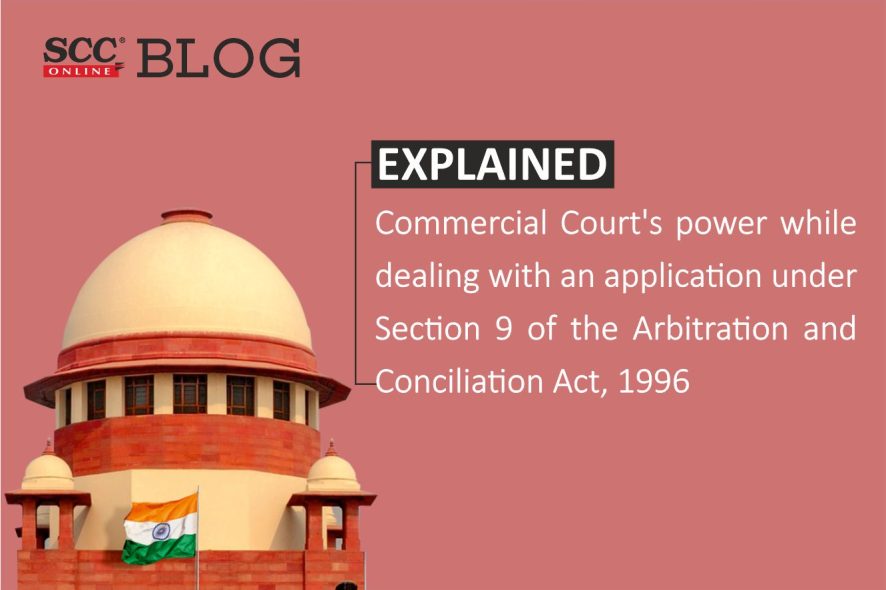Supreme Court: The bench of MR Shah* and Krishna Murari, JJ has explained the scope of powers of a Commercial Court while dealing with an application under Section 9 of the Arbitration and Conciliation Act, 1996 and has held that the order(s) which may be passed by the Commercial Court is basically and mainly by way of interim measure.
However, if all the conditions of Order XXXVIII Rule 5 of the CPC are satisfied and the Commercial Court is satisfied on the conduct of opposite/opponent party that the opponent party is trying to sell its properties to defeat the award that may be passed and/or any other conduct on the part of the opposite/opponent party which may tantamount to any attempt on the part of the opponent/opposite party to defeat the award that may be passed in the arbitral proceedings, the Commercial Court may pass an appropriate order including the restrain order and/or any other appropriate order to secure the interest of the parties.
The Court was deciding the case where the Commercial Court had directed to deposit the amount of performance bank guarantees pertaining to two purchase order invoked by it. The Allahabad High Court affirmed the said order.
The Supreme Court, however, observed that when the bank guarantees were already invoked and the amounts under the respective bank guarantees were already paid by the bank much prior to the Commercial Court passed the order under Section 9 of the Arbitration Act, 1996, the Commercial Court could not have passed the order under Section 9(ii)(e) of the Arbitration Act, 1996 to secure the amount in dispute, in absence of specific allegations with cogent material and unless prima¬facie the Court is satisfied that the appellant is likely to defeat the decree/award that may be passed by the arbitrator by disposing of the properties and/or in any other manner and non-fulfilment of the pre-conditions under Order XXXVIII Rule 5 of the CPC.
The Court also took note of the fact that even otherwise there are very serious disputes on the amount claimed by the rival parties, which are to be adjudicated upon in the proceedings before the arbitral tribunal.
The orders of the Commercial Court as well as the High Court were, hence, set aside.
[Sanghi Industries Limited v. Ravin Cables Ltd, 2022 SCC OnLine SC 1329, decided on 30.09.2022]
*Judgment by: Justice MR Shah
For appellant: Senior Advocate Vivek Chib
For Respondent: Senior Advocate K.V. Viswanathan






